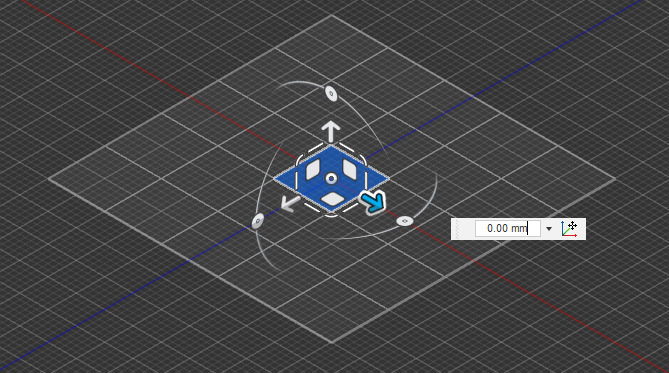- 02.robotics Phase 2mr. Mac's Virtual Existence Key
- 02.robotics Phase 2mr. Mac's Virtual Existence Model
- 02.robotics Phase 2mr. Mac's Virtual Existence Reality
Let’s face it – the world economy of the not-too-distant future will likely rely exclusively on the use of robotics. Even if such a grandiose statement turns out to be only partly true, the demand for robotic designers, programmers, and technicians will be significant. Before robotics can grace a manufacturer’s assembly line, their performance must be assured; after all, what self-respecting entrepreneur would invest millions for unproven tech? For this reason, robotic simulations are an integral part of product development.
1980s: The robot industry enters a phase of rapid growth. Many institutions introduce programs and courses in robotics. Robotics courses are spread across mechanical engineering, electrical engineering, and computer science departments. Adept’s SCARA robots Cognex In-Sight Robot Barrett Technology Manipulator History of Robotics: III.
DevelopersTutorielsMove the robot In this tutorial you will learn to move the MRPi1 robot. Forward back turn left and right Robot base The MRPi1 robot is a differential wheeled robot based on two separately driven wheels and one free turning wheel. Mr Huang relied on an exchange between his counsel and the Arbitrator concerning an application by Mr Chen’s counsel for credit for payments of compensation made T 8.25 and also to what was an incomplete reference to his evidence at 15 of his statement. The selective reference to his statement was misleading. Share Image of Project made by you after watching my Tutorial. Arduino RaspberryPi Robotics Electronics DIY Unboxing Review.
In general terms, the simulation process requires the development of a virtual model that is capable of mimicking real-world processes performed by virtual versions of a physical robotic system. Of course, there are many tools that can be used to run these simulations, but it can be tricky for someone looking to learn about robotic simulation software to know where to start. Here are five worth knowing about.
RoboLogix
RoboLogix is a 3D industrial simulation software originally designed by a company called Logic Design out of Toronto, Ontario. It’s primarily used to teach, test, run, and debug software developed for a five-axis industrial robot.This software comes fully loaded with a number of useful training environments including pick and place, spray painting, conveyor, and welding applications. Since it is difficult (as well as expensive) to provide students with hands-on experience with automation machinery, software like RoboLogix allows students to gain considerable and valuable experience that simply can’t be gotten in the real world.

Visual Components
Visual Components is a highly sophisticated robotics design and simulation suite hailing from Finland. With it, students will not only be able to design entire manufacturing processes, they’ll also be able to analyze the simulated data, build virtual robotics equipment, monitor and adjust material flow to identify efficiencies, and analyze expected human operator actions. Accompanied by over 1800 3D models of various models like industrial robots, factories, tools, machinery, and more, this robust software also allows for offline programming. The suite consists of five different software packages, dovetailing all the various elements of robotic simulations that one might expect to have access to in a product of this sophistication.
- 3DAutomate – Used to simulate entire manufacturing facilities
- 3DCreate – Used to create production line simulations within the application or by importing CAD files
- 3DRealize – Used to create basic 3D production line models
- 3DRealize R – An enhanced version of 3DRealize, used more prolifically to edit and analyze production simulations and apply changes to models
- 3DSimulate – Used to extract analytical data, statistics, and reports from simulations
Anykode
Anycode Marilou may market towards hobbyists as well as professionals, but that doesn’t mean that it is any less sophisticated than any of the other software packages designed for those interested in learning robotic simulation software. At its core, Anykode allows users to create simulation environments for mobile robotics and articulated arms operating in real-world conditions that employs an ODE engine that detects collisions and dynamic management. This modelling software allows the user to apply forces governed by physics (e.g. torque, friction, damping, etc.) to their projects to see how well their designs hold up and make adjustments accordingly.
Webots
Webots is a highly regarded, open source robot simulator. Webots uses an Open Dynamics Engine (ODE) to simulate and detect rigid body dynamics produced by collisions and allows the user to virtually test properties like velocity, inertia, and friction. Several simulation models provided in Webots have been calibrated against real-world equivalents, things like sensors, actuators, and robots. Additionally, Webots allows users to build several mechanical architectures including:
- Articulated robots
- Wheeled robots
- Modular robots
- Swimming robots
- Flying robots
Roboguide
Roboguide is a software suite developed by FANUC Robotics consisting of four separate applications, each playing a vital role in simulation production.
- HandlingPRO – Used for material handling applications including load/unload, packaging, assembly, and material removal. Additional features include conveyor line tracking, machine programming and modeling.
- PaintPRO – Used to create robotic path, teach, and paint processes. Several painting methods can be applied.
- PalletPRO – Used for developing and debugging palletizing and depalletizing systems. Create a workcell layout, infeed and pallet stations and more. The information gathered using PallePRO can be downloaded in a real robotic controller provided it contains the PalletTool software application.
- WeldPRO – Used to create and simulate arc welding processes. Program can be transferred from the virtual workcell to a real robot to decrease the installation time.
Understanding Robotics Simulation Software: A Key Skill

As evidenced by the software options listed above, there are a shockingly large number of software packages available that are designed to facilitate the learning process in a safe environment. The great thing about this type of software is that it’s not just for professionals or novices exclusively; anyone with a desire to learn about robotic simulation software can use any of the tools listed above to hone their robotics technician skills or experiment with new ideas without incurring a cost, or creating a risk. It’s important to remember that while different softwares offer different features, they all provide similar opportunities for growth.
MapleSim
Advanced System-Level Modeling
Maple
A complete, rapid solution development environment
MapleMBSE
An Excel-based tool that makes systems engineering easier.
Maplesoft Services
02.robotics Phase 2mr. Mac's Virtual Existence Key
The expertise and technology you need to meet your project requirements quickly and effectively
MapleSim CAD Toolbox
Investigate how your mechanical models will behave when part of a larger system by incorporating your CAD models into MapleSim's multidomain, system-level modeling environment.
MapleSim Battery Library
The MapleSim Battery Library allows you to incorporate physics-based predictive models of battery cells into your multidomain system-level models.

See all products
02.robotics Phase 2mr. Mac's Virtual Existence Model

02.robotics Phase 2mr. Mac's Virtual Existence Reality
A mix of products and services, tailor-made to fit your requirements.
